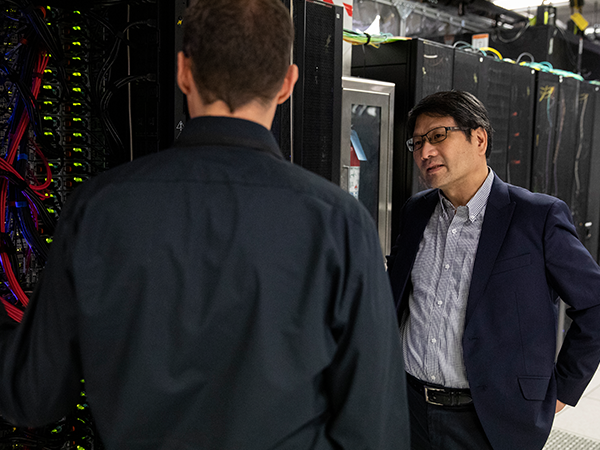We’re seeking exceptional faculty to move Mizzou Forward in national science, engineering and technologies areas. To further interdisciplinary collaboration, the university will consider faculty candidates in several areas of research.
MizzouForward
New Frontiers in Science, Engineering and Technologies
New Frontiers in Science, Engineering and Technologies
New Frontiers
Research areas
- Advanced Materials, Manufacturing & Construction
- Advanced Measurement Science, Imaging & Analysis
- Artificial Intelligence
- Computing & Communications
- Critical Infrastructures & Security
- Energy, Environment & Earth Sciences
- Life sciences
- Nutrition
- Pharmacology
- Precision agriculture
Candidates with compelling research success outside these categories will also be considered.

Why New Frontiers at Mizzou?
In addition to the state-of-the-art resources available to investigators through the MU campus research facilities, Mizzou resources available to support New Frontiers researchers include:
- Bond Life Sciences Center provides facilities, novel tools and networking for research collaborations to support human and animal health, the environment and agriculture.
- Center for Agroforestry works to improve the health of agroecosystems through landscape diversification, genetic improvement of tree crops and livestock integration.
- Center for Eldercare and Rehabilitation Technology develops technology for proactive health care driven by clinical needs and evaluates them in realistic settings.
- Mizzou is part of the Center for Excellence in Logistics & Distribution, an applied research and education consortium specializing in distribution, transportation, manufacturing, information technology and software solutions.
- Center for Geospatial Intelligence provides specialized research laboratories and high-performance computing infrastructure to address geospatial intelligence problems.
- Center for Nano/Micro Systems provides access to advanced fabrication and characterization equipment.
- Cybersecurity Center at Mizzou uses interdisciplinary research and educational approaches to address national security problems.
- The Electron Microscopy Core, located in the NextGen Precision Health building, provides electron microscopy services and technology to investigators.
- The Industrial Assessment Center offers free energy, productivity and waste assessments through a partnership with the U.S. Department of Energy.
- Industry-University Cooperative Research Program accelerates the impact of research through relationships with industry innovators, academic teams and government leaders.
- The Interdisciplinary Plant Group brings together faculty from computer sciences, engineering, plant sciences and other disciplines to enable broad collaborations that have a proven record in securing significant federal funds
- Missouri Center for Transportation Innovation is a collaborative partnership that provides access to cutting-edge resources like state labs, test tracks, machine learning and virtual reality for the purpose of improved infrastructure.
- ResearchFRST invests in resources and training to enable faculty development, interdisciplinary project grant support, innovative technology development and more.
- The Show-Me-Select Replacement Heifer Program and the MU Livestock Engineering Team facilitate the production of genetically engineered livestock for science, medicine and agriculture and collaborate with many research programs at MU.
- Synchrotron X-ray diffraction station Beamline 4.2.2. is located at the Advanced Light Source at Berkeley National Lab. The station provides MU researchers on-demand access to a remote-controlled, multiwavelength X-ray diffraction end-station.
- The Technology Advancement Office works at the intersection of science, business and patent law to pave the way for translation of innovations into products and businesses.
- University of Missouri Research Reactor (MURR) is the nation’s most powerful university reactor and allows researchers to characterize the structure and dynamics of materials and investigate their behavior in extreme environments.